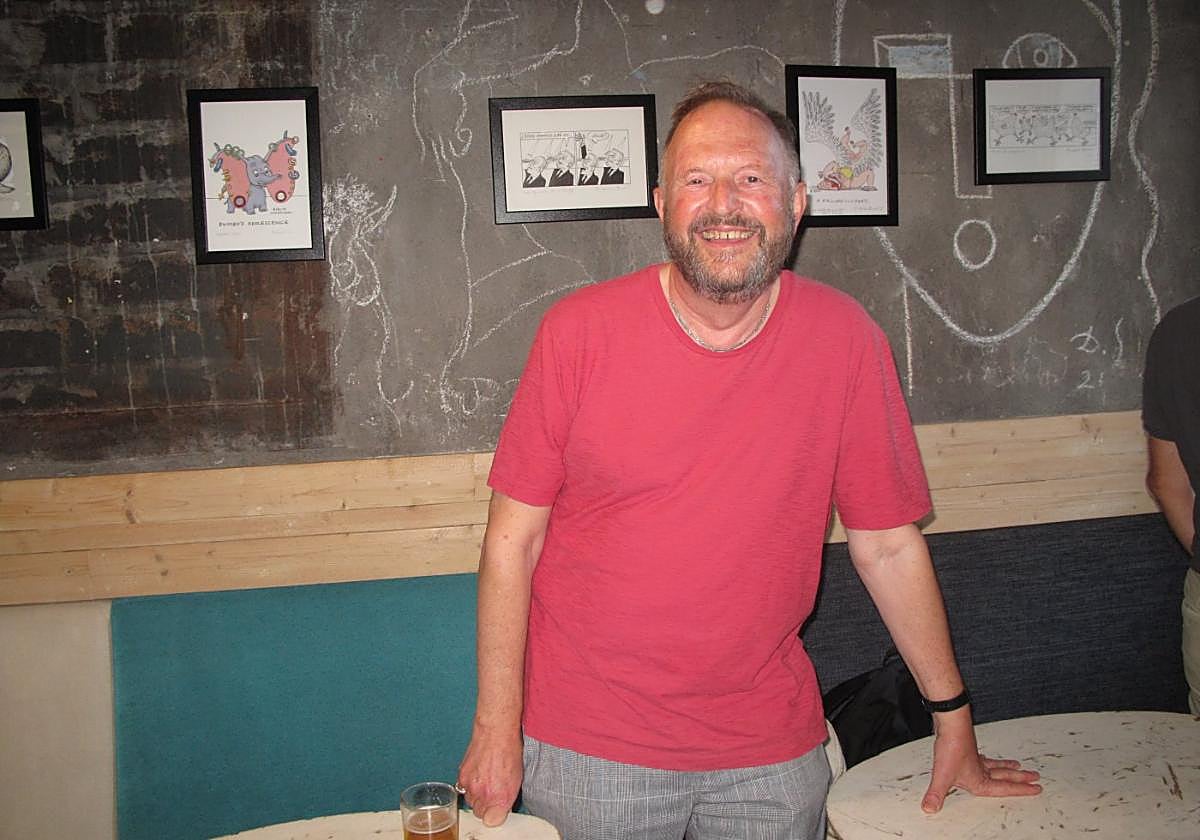British cartoonist Andrew Birch: A successful career poking fun at the absurdities of life
In 1992, Andrew and his late partner moved to Spain, first settling in Barcelona, before heading to Malaga
Bringing out the absurd in news, politics and current affairs is a profession that has been popular around the world since the late 18th century. The traditional cartoon strips, or pocket cartoons as they were once known, that became popular in daily newspapers at the beginning of the 20th century offered a sideways look at what was happening in the world and were designed to bring a ray of hope to readers. The general aim of the cartoonist is to make people laugh, although not everyone featured in these strips are amused, as British cartoonist Andrew Birch has found out on more than one occasion.
Andrew is renowned for his sharp, English wit and has had his comic strips published in Private Eye, The Observer, The Independent and The Guardian, among others. His strip The Rebel (The Oldie) was turned into a series for UK television in 2012 and starred Simon Callow, Anita Dobson and Bill Paterson.
He moved to Spain at the age of 40 and has since continued to create his hilarious strips, many of which can be viewed at his current exhibition in the Cafe del Estraperlo in Malaga (Soho) until September.
Born in Burton-on-Trent, Andrew showed a remarkable talent for drawing from a very early age, although he was "pushed towards the academic side at school" and ended up reading Microbiology at London University. Realising what he describes as "the error of his ways", he spent the next few years in Derbyshire endeavouring to become a writer. However, his dream did not materialise, so he began submitting cartoons to various publications, eventually getting his first "proper" job as a cartoonist for the science journal, Nature.
"I've no regrets about not following my initial path, but, if it wasn't for having a science degree, I would not have got my first job. The fact that I had the degree meant I more or less understood the politics of science, so it did come in useful in the end," Andrew tells SUR in English.
He started his first strip, The Designers, in the Design Week magazine, and subsequently went on to work for The Guardian (Media Tarts), The Observer (Hot Air), The Sunday Times (The Hypochondriac), and the Financial Times (Urban Fox).
"I've carried on working for Private Eye, but all the other ones either sacked me, or went digital, but that's how it is being a freelance cartoonist. I lost my job at the Financial Times because a few American businessmen were upset because I used a phrase that offended them. I was accused of blasphemy, so I was let go because of protests from the States," he says, laughing out loud.
In 1992, Andrew and his partner moved to Spain, first settling in Barcelona, before heading to Malaga.
"I came to Spain because my late partner, Miguel, who I met in London, had Spanish ancestry, so we went to Spain a lot on holiday. Because Miguel spoke Spanish, we eventually decided to come to Spain to live."
Controversy in Malaga
Once settled in Malaga, Andrew began producing a long-running political strip for La Opinión de Málaga, although all did not end well after his work caught the attention of the provincial authority.
"I worked for La Opinion for about five years. I made a mistake of taking a pop at the city hall on far too many occasions and I was told to back off after the mayor's secretary complained. To this I agreed, but I went back on my word, so I was sacked," he says, bursting into laughter once again.
Andrew's exhibition at El Estraperlo will include a selection of his work produced for both the Spanish and English press, and visitors will have the opportunity to see some of the pieces that have caused complications during this time, especially the ones that ruffled feathers at Malaga city hall, which he still finds amusing, seeing as he thinks Spanish cartoonist can be "more cutting" than him.
"There is a common misconception that Spanish humour is totally different to English, but they are on the same level. Some of the Spanish cartoonists are just as sharp as us. In fact, they are allowed to get away with much more than we can," he concludes.

